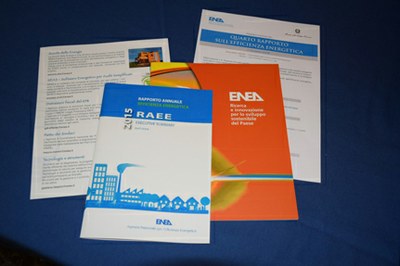National energy efficiency policies contribute to Italy’s fight against climate change
22/6/2015
The ENEA’s Report on Energy Efficiency assessing Italy’s progress towards meeting its 2020 energy efficiency targets, was presented in Rome.
Thanks to its national energy efficiency policies, Italy has saved 7.55 million tons of oil equivalent (Mtoe) per year, equal to over 2 billion euro lesser amounts of imported natural gas and oil, thus avoiding the production of millions of tons of CO2.
 Furthermore, the adoption of the so called “eco-bonuses” has resulted in over two million households investing 22 billion euro in energy refurbishing in the period 2007-2013, creating an average of 40.000 jobs annually, as pointed out in the 4th ”Report on Energy Efficiency” (RAEE) by ENEA, which was presented at the Ministry for the Economic Development, in Rome on Thursday June 11.
Furthermore, the adoption of the so called “eco-bonuses” has resulted in over two million households investing 22 billion euro in energy refurbishing in the period 2007-2013, creating an average of 40.000 jobs annually, as pointed out in the 4th ”Report on Energy Efficiency” (RAEE) by ENEA, which was presented at the Ministry for the Economic Development, in Rome on Thursday June 11.
The report highlights that Italy is well on course to meet its 2020 energy efficiency goals.
Among others, the industrial and the residential sectors have contributed significantly to reaching these results.
Also the agri-food sector, by fighting food waste and promoting local food farming, together with high-efficiency technologies in the large-scale retail sector (refrigeration systems and illumination) and in the logistics sector, could play a key role in meeting the target.
The 7.55 Mtoe saved derive from higher energy efficiency levels obtained through the adoption of the White Certificates Mechanism (3.4 Mtoe), the minimum energy efficiency standards (2.4 Mtoe), the incentives for the transportation sector (0.9 Mtoe), and the ecobonuses (0.9 Mtoe).
